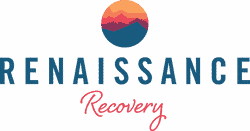Cognitive-Behavioral Therapy
CBT Treatment in California
Cognitive behavioral therapy is a treatment used to help people conquer addiction and mental health disorders. When you choose Renaissance Recovery, you can rest assured — the cognitive behavioral therapy program at our mental health treatment center in Southern California and California rehab can assist you in ending your drug or alcohol addiction. Our addiction treatment programs will help you tear your focus from your daily stressors and focus instead on your recovery.

By: Renaissance Recovery
Clinically Reviewed by: Diana Vo, LMFT
Last Updated:
03/24/2024
Understanding Cognitive-Behavioral Therapy (CBT)
Cognitive behavioral therapy, usually abbreviated to CBT, is a type of psychosocial intervention that aims to alleviate the symptoms of various mental health disorders.
CBT is proven effective in over 2000 studies for treating the following:
- Alcohol use disorder
- Substance use disorder
- Depression
- Anxiety
- PTSD
- Eating disorders
- Marital problems
If properly implemented, cognitive behavioral therapy can help you get better and stay better.
Table of Contents
What is Cognitive Behavioral Therapy?
Dr Aaron T Beck founded CBT in the 1960s, although some of the fundamentals of the discipline date back to ancient philosophical tradition.
A classification of mental health counseling, CBT is typically used to treat anxiety and depression. CBT can also be effectively applied to other areas of physical and mental health.
Cognitive behavioral therapy is a type of psychotherapy, the clinical descriptor for talk therapy. This informal name emphasizes the importance of talking as the foundation for healing. When cognitive therapy is implemented together with behavioral therapy, you can learn to manage and mitigate problems by altering your thoughts and your behaviors.
CBT makes the following core assumptions:
- Problematic thinking underpins many psychological problems.
- Learned patterns of behavior underpinning many psychological problems can be damaging and unhelpful.
- By harnessing superior coping skills through CBT, you can reduce your symptoms and become more effective in everyday life.
You typically attend CBT sessions led by a psychologist or psychiatrist. Sometimes, licensed social workers or licensed counselors also deliver cognitive behavioral therapy.
Rather than probing the past, CBT instead focuses on the present with problem-oriented strategies to help you push forward and to deal with everyday stressors more comfortably. Past behaviors are not entirely ignored, but there is a sharp focus on the present throughout therapy.

Cognitive Behavioral Therapy Techniques
Cognitive behavioral therapy utilizes an array of techniques. Your therapist will work closely with you to establish the most effective combination of techniques.
Treatment typically involves the following:
- Recognizing how inaccurate or flawed thinking can make problems worse.
- Learning problem-solving skills.
- Understanding how other people think and discover their motivations.
- Facing challenges and fears.
- Strengthening self-worth and improving confidence.
- Using role-play and calming techniques to illustrate how to overcome potentially challenging situations.
The further you progress with cognitive behavioral therapy, the more confident you will become at replacing unhelpful and self-defeating thoughts with more realistic and positive thoughts.

CBT for Mental Health
While CBT was originally used to treat the symptoms of depression, but research indicates it can address a broad variety of conditions, including anxiety, PTSD (post-traumatic stress disorder), and some phobias. CBT can also be used to treat overlapping mental health conditions that occur with alcohol use disorders and substance use disorders, but we will touch on that more a bit later.
Specific versions of CBT can be used to effectively treat insomnia and some eating disorders, but a large majority of cognitive behavioral therapy treatment is in place to help people conquer mental health disorders that they are dealing with.
When used to treat mental health conditions, CBT is most commonly applied to:
- Anxiety
- Depression
- PTSD
Anxiety
Cognitive behavioral therapy for anxiety is both an effective and lasting treatment, according to research in this area.
Anxiety is one of the most common mental health conditions that affect people. While a normal amount of anxiety is a common problem for nearly everyone, for some people the problem can become crippling and lead to problems in their personal, social, and professional lives. But this is where cognitive behavioral therapy can help.
CBT gives you the tools you need to change the thoughts and behaviors inflaming your anxiety. As you learn to identify and then challenge these flawed and destructive thoughts, you can start replacing them with positive and realistic thoughts.
Engaging with CBT for anxiety can empower you to change the cycle of anxiety disrupting your life.

Cognitive Behavioral Therapy for Addiction
Many people with alcohol use disorder or substance use disorder struggle with negative thoughts or thoughts running counter to recovery. CBT focuses on first identifying and then replacing these thought patterns into more positive and adaptive ones.
There are many ways that CBT can be effective for people with addictions, including:
- Identifying self-destructive thoughts and behaviors
- Monitoring these thought patterns
- Utilizing a more adaptive way of thinking
- Applying these skills in new settings
- Implementing healthy coping strategies to deal with stressors
When used as part of an overarching treatment plan including medication-assisted treatment, counseling, and holistic therapies, CBT can be invaluable for both alcoholism and drug addiction.


What Does a Cognitive Behavioral Therapist Do?
The main role of a cognitive behavioral therapist is to help the client identify thought patterns and behaviors, specifically concerning their life, surroundings, and relationships. The therapist aims to show you how you can influence these thoughts and behaviors rather than being stuck in a trap of repeated behaviors with adverse outcomes.
Ultimately, CBT therapists help you to become your own therapist over the long term, empowering yourself by changing problematic thinking, emotions, and behaviors.
What Are the Three Goals of CBT?
The primary goal of CBT is to help the client fully grasp how their thoughts influence their actions and behaviors.
There are three pillars of CBT that enable this:
- Identification: Your therapist guides you to identify your thoughts and emotions, as well as your behaviors.
- Recognition: By recognizing when you think or act negatively, you can start to break these defeating patterns of thinking or acting.
- Management: Using skills, techniques, and activities, you can ease your body and mind rather than succumbing to poor or self-defeating behaviors.
What Principle Underlies CBT?
The core assumption of cognitive theory is that thoughts are the main determinant of both emotions and behavior.
CBT is grounded on the theory that the way people perceive situations is more closely linked to their reaction than the situation itself. This mental process is called information processing.
At the heart of CBT, then, is that you can process information much like a computer following a program to achieve a certain outcome.

To help you explore the above concepts, your therapist will use any or all of the following specific techniques:
- Journaling: Your therapist may ask you to note any negative beliefs you encounter during the week, also noting the positive beliefs you used to replace them.
- SMART goals: SMART goals are not only specific and measurable, but also achievable, realistic, and time-limited.
- Cognitive restructuring: Your therapist will help you to examine any cognitive distortions influencing your thoughts. If you tend to jump to conclusions, to think in binary times, or to catastrophize, your therapist will help you unpack these cognitive distortions.
- Guided questioning: By helping you to question assumptions you have, whether about yourself or your current circumstances, your therapist can help you challenge these viewpoints, while at the same time considering alternatives.
- Thought recording: This technique requires you to come up with impartial evidence supporting negative beliefs, as well as evidence against these beliefs. By using hard evidence, you’ll learn to think more realistically.
- Positive activities: If you make time each day for a rewarding activity, you can boost your mood and improve overall feelings of positivity.
- Situation exposure: Working with your cognitive behavioral therapist, you’ll list situations or things that trigger distress, and you’ll rate them according to the intensity of distress caused. By gradually exposing yourself to these potential triggers, you’ll feel less intensely about them over time.
- Systematic desensitization: A similar technique to situation exposure, with systematic desensitization you learn to use relaxation techniques to better cope in difficult situations.
- Self-talk: Guided by your therapist, you tell yourself about certain experiences or situations, replacing any critical or negative self-talk with more constructive and compassionate self-talk.
If you engage with cognitive behavioral therapy, you can expect homework assignments, allowing you to practice and develop skills you learned in your CBT sessions.

Depression
Many studies document the benefits of cognitive behavioral therapy for depression.
Research shows CBT can be as effective as antidepressants in some cases, and those who engage with CBT for depression can be less likely to relapse.
Cognitive behavioral therapy can provide you with the inner strength and resources required to heal without a recurrence of depressive episodes.
PTSD
Cognitive behavioral therapy for PTSD is most effective when a trauma-focused cognitive behavioral therapy like CT (cognitive therapy) is applied.
CT for PTSD is derived from CBT and involves modifying negative or pessimistic memories and evaluations to interrupt the PTSD symptoms disrupting your life.
According to the cognitive model, processing traumatic events in certain ways leads to feelings of severe and present danger.
Cognitive therapy is strongly recommended by the APA for the treatment of PTSD.
CBT in California
If you feel CBT could help you with mental health or addiction issues, you have a wealth of options here in California with world-class specialists and cognitive behavioral therapists on your doorstep.
Whether you are looking for cognitive behavioral therapy in Los Angeles, the surrounding area, or somewhere else in California, our team at Renaissance Recovery can help provide you with the resources to find exactly what you’re looking for and what you need.
That said, our team is based out of Orange County and can provide CBT services to anyone in the surrounding areas including Huntington Beach, Newport Beach, Irvine, Costa Mesa, and more.
Cognitive Behavioral Therapy in Orange County
If you’re looking to engage with cognitive behavioral therapy in Orange County, our OC rehab offers a wide range of programs for addiction, mental health disorders, and co-occurring disorders utilizing CBT.
For anyone unable to attend a treatment center, we also offer virtual therapy. If you have an internet connection and a computer or smart device, you can benefit from remote CBT sessions as part of our virtual IOP.
If you need cognitive behavioral therapy elsewhere in the greater Los Angeles area or throughout Southern California, reach out to Renaissance for more information.
Cognitive Behavioral Therapy Near Me at Renaissance Recovery
Here at Renaissance Recovery Center, all our treatment programs for alcohol use disorder, substance use disorder, and co-occurring disorder utilize evidence-based therapies, including cognitive behavioral therapy.
We offer a selection of outpatient programs at varying levels of intensity, including IOPs and PHPs, enabling you to access the services you would find in residential rehab at a fraction of the cost and without needing to leave home.
Whether you are grappling with alcoholism, drug addiction, or mental health issues, CBT sessions can help equip you with the skills you need to embrace lifelong sobriety while avoiding relapse.
To get started, reach out to admissions today at 866.330.9449.
Rehabilitation can put an end to addiction
Call and ask the facility directly or call your own provider to determine if your insurance covers the treatment.

